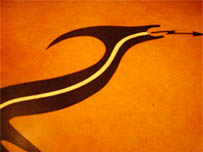http://www.ser.org/iprn/founder.asp
This is another site that fits nicely with our Module 4 focus on Ecological Issues in Indigenous Education and Technology. Dennis Martinez, chair of the IPRN, discusses the rising interest in Traditional Ecological Knowledge (TEK). He suggests that TEK offers a complementary approach to Western Science in the quest to understand our natural world. He notes that Indigenous societies were the first to notice the effects of climate change, and that they have a wealth of environmental information base on the observations of countless generations.
Martinez goes on to discuss how TEK is being threatened by globalization, which has often resulted in Indigenous groups losing control over their ancestral lands and resources. He stresses the need to restore and repair the relationship between nature and humans.
There is a wealth of additional information on this website, organized through numerous links on the left side of the homepage. Well worth a look – so much to learn and consider here!
 The mission of the
The mission of the